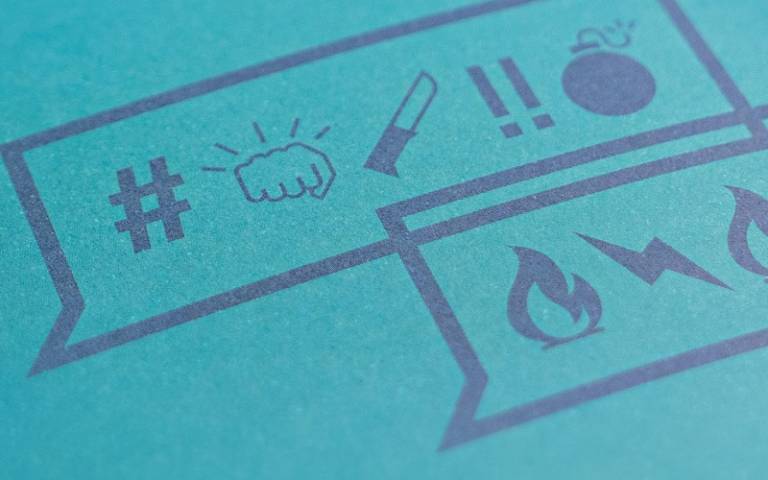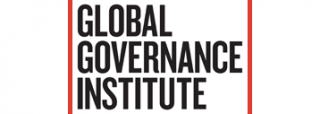The Place of Freedom of Expression in Global Human Rights
2 December 2021
Freedom of expression is a cornerstone of democracy. But it has also been invoked to justify divisive and stigmatising language. What is the right balance between freedom and censorship?

By Hugo Bourhis (MSc Global Governance and Ethics)
The absolute and unconditional nature of free speech is increasingly contested. While seen as a major achievement and a powerful symbol of democratic societies, freedom of expression can also be used as a justification for manipulative practices that threaten to undermine human rights: how to find the balance between freedom and censorship in the age of Trump, social media, and disinformation? And which authority should set this balance?
The debate surrounding free speech is indicative of a deep division in today's democracies regarding the question of what can be said, both on social media and by public figures such as politicians, journalists, and comedians, as the recent Dave Chappelle controversy reflects.
As Monique Canto-Sperber summarizes, “freedom of expression, once threatened by state power and established authorities, especially religious ones, is now being held hostage by two opposing movements. On the one hand, we are witnessing, in the name of freedom, the most extreme expression of verbal hatred, stimulated by the extraordinary diffusion of speech made possible by digital tools. On the other hand, we are witnessing censorship phenomena inspired by extremely strong social currents that want to impose their conception of what can be said and what must be kept silent.”
This tension is particularly salient in democracies because all points of view are allowed to be heard and, at least in theory, every opinion is treated with the same level of respect, whether or not it is relevant or well-informed. This tolerance is justified on the basis that no particular group or individual is in possession of the truth and therefore no one should be allowed to define what is right or wrong, good or bad. From this vantage point, all opinions should be presented for the public to judge and come to their own conclusions, in line with the well-known saying: “I do not agree with what you have to say but I'll defend to the death your right to say it.”
Although generally attributed to the 18th century French philosopher Voltaire, those words were actually written in 1906 by a biographer of Voltaire, Evelyn Beatrice Hall. Voltaire’s original statement was: “Think for yourselves and let others enjoy the privilege to do so too.” The biographer’s interpretation deviates significantly from Voltaire’s intended meaning yet is widely used to support the unconditional protection of free speech.
This idea remains an important cornerstone of democratic societies today. However, it is also subject to distortion as the number of for-profit platforms for debate has increased exponentially with the proliferation of corporate news channels, social media and the Internet in general. Private 24-hour news channels, such as CNews in France or Fox News in the United States, devote a large part of their airtime to so-called debates between polarising personalities holding polemical views. The objective of these private news channels is no longer to encourage informed public debate or to help audiences form their own opinions based on a careful weighing of different viewpoints, but rather to increase profits through ratings (or clicks). Léa Salamé, a well-known journalist in France, underlined this point earlier this month, citing increasing pressure on media outlets to remain relevant in the face of growing competition in the sector.
The underlying logic of freedom of expression is that it should be a means to improve, progress and discover a form of truth through different points of view. If this logic no longer prevails, and freedom of expression is instead employed in a way that is manipulative, stigmatising and divisive towards certain communities, one may ask whether it does not become contrary to the constitutional principles of human rights – freedom, dignity and equality. This dilemma invokes Karl Popper’s paradox of tolerance: “In order to maintain a tolerant society, the society must be intolerant of intolerance.” In some cases, this could mean restricting access to amplifying platforms in the interest of “public safety,” as reflected in Twitter’s explanation for banning Donald Trump after the storming of the Capitol.
The conflation of hate speech with critical speech is pervasive and encourages intolerance under the guise of free speech. Although there is currently no international legal definition of hate speech, and the characterization of what is ‘hateful’ can be controversial and disputed, the term hate speech is understood here as “any kind of communication in speech, writing or behaviour, that attacks or uses pejorative or discriminatory language with reference to a person or a group on the basis of who they are, in other words, based on their religion, ethnicity, nationality, race, colour, descent, gender or other identity factor.” This definition is largely built on the International Covenant on Civil and Political Rights (ICCPR) which states that “any advocacy of national, racial or religious hatred that constitutes incitement to discrimination, hostility, or violence shall be prohibited by law.”
In the face of reluctance to restrict freedom of expression, a widely promoted response is to counter intolerant discourse and disinformation with more speech, rather than censorship, encouraging an egalitarian discourse that denounces, condemns, and deconstructs such speech. A recent report by the UN Special Rapporteur on freedom of expression advocates the same approach, stressing that “attempts to combat disinformation by undermining human rights are short-sighted and counterproductive. The right to freedom of opinion and expression is not part of the problem, it is the objective and the means for combating disinformation.”
However, as Brink (2001) points out, the promotion of open debate to counter hate speech cannot prevent the distress that such speech causes to targeted communities, nor is it likely to prevent those communities from feeling marginalized. Furthermore, if the overall effect of hate or intolerant speech on deliberative values and learning is negative, we might wish to exclude it from debate on principle. Michel Foucault also emphasises the power of words and the way statements construct particular realities and connections between people and things. Thus, in giving any airtime to hate speech, we may become complicit in reproducing preconceived ideas about certain communities.
The issue of freedom of expression on social media is all the more interesting as it is an inconsistently regulated space with no effective governance structures and no central authority capable of deciding what is acceptable or not. Furthermore, the question of which authority should set the balance between freedom and censorship and at which level (national or global) is highly controversial. Thus, although regulation on hate speech and disinformation exists, social media platforms allow for almost total freedom of expression. While Facebook, for example, claims to remove over 90% of hate speech from its platform, internal documents suggest that the vast majority of such speech remains online.
Individuals expressing themselves on social media are not constrained by any informal pact, as might be the case between journalists and media, employees and business, students and universities, and others, to protect what is or is not acceptable to say within those structures.
Does this imply that it is necessary to reduce freedom of expression if speech does not have any deliberative value? Can such a reduction in free speech serve to reduce intolerance, or will intolerance only grow in closed circles? More broadly, should egalitarian human rights concerns require some restrictions on free speech in the interest of protecting specific communities? These questions are bound to become ever more urgent in light of the increasing fragmentation and segmentation of media landscapes and social networks.
 Close
Close


